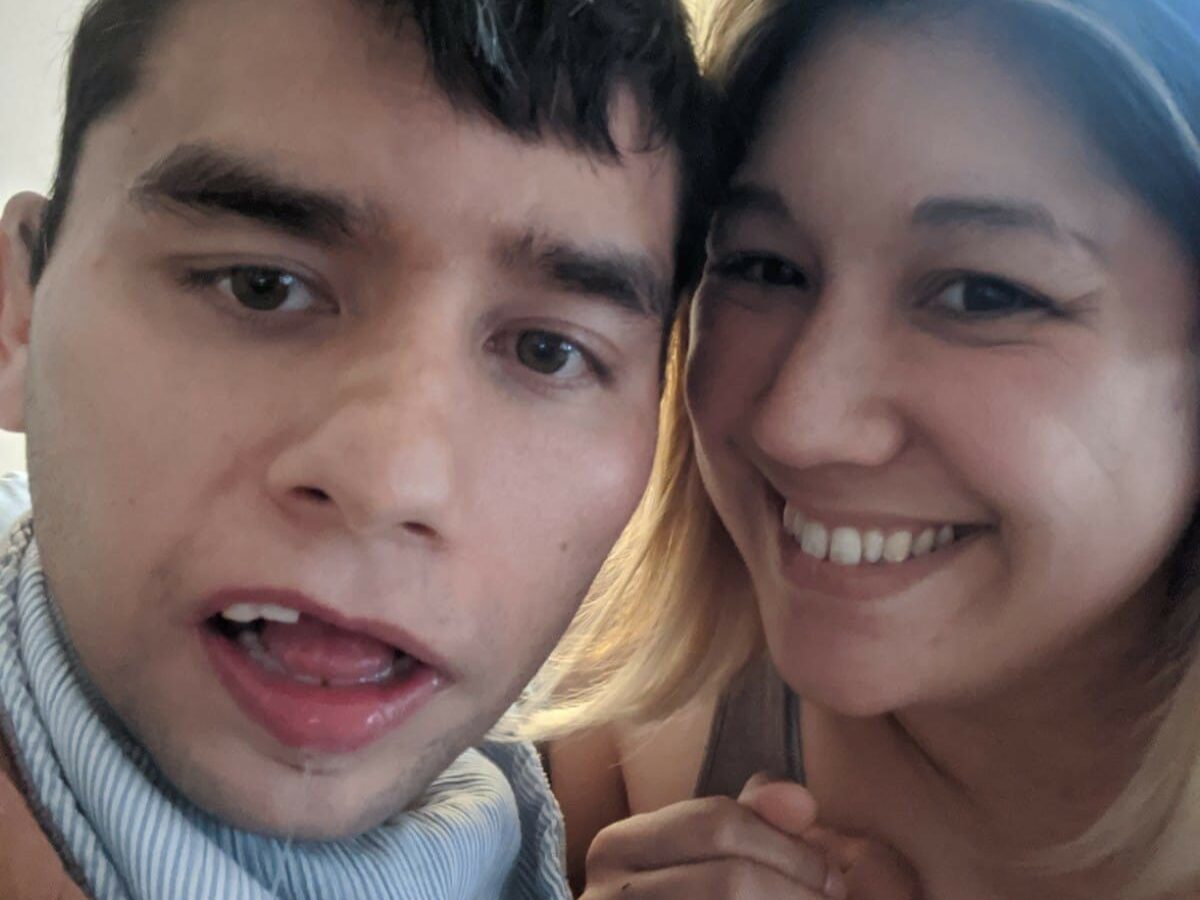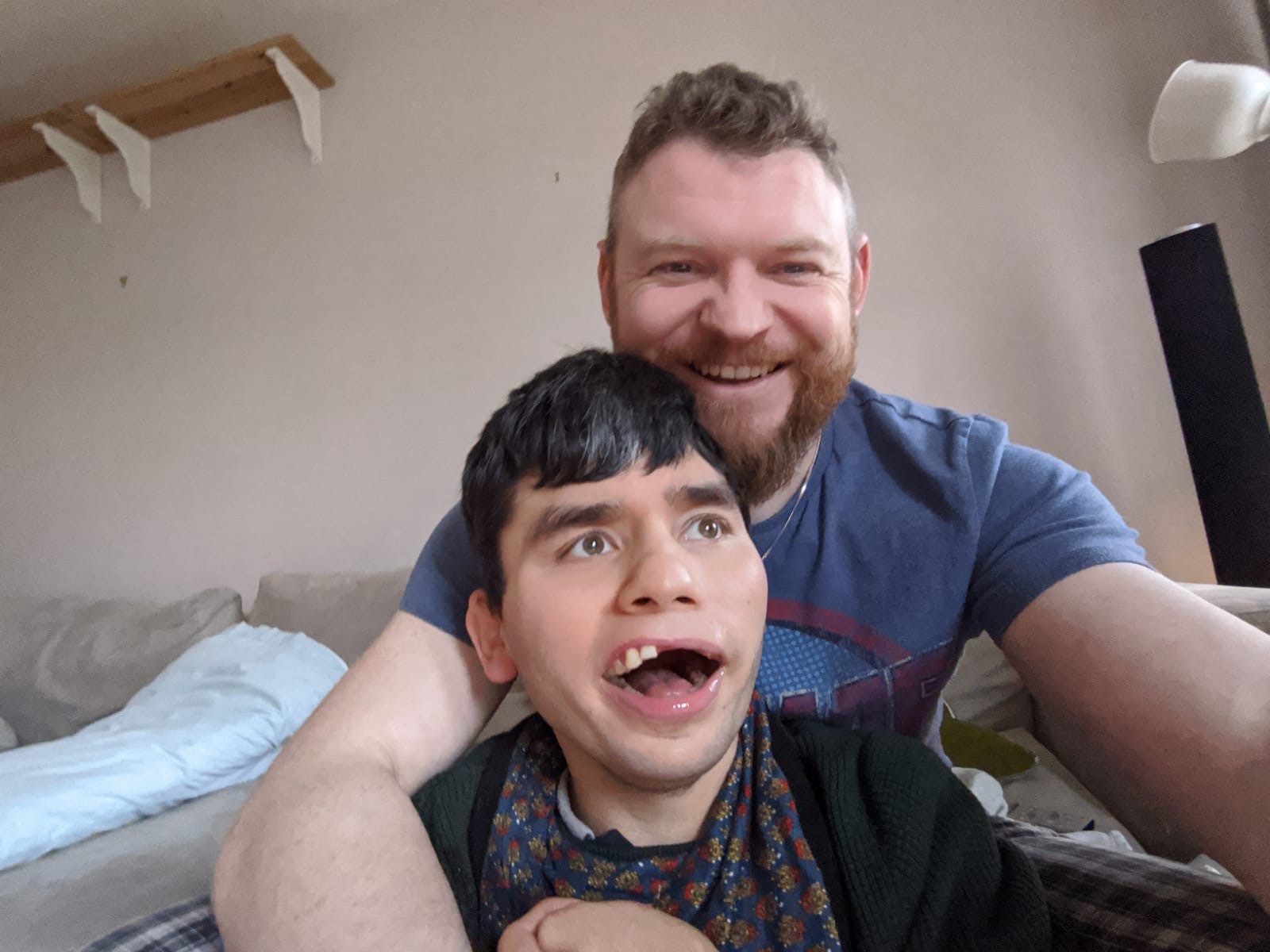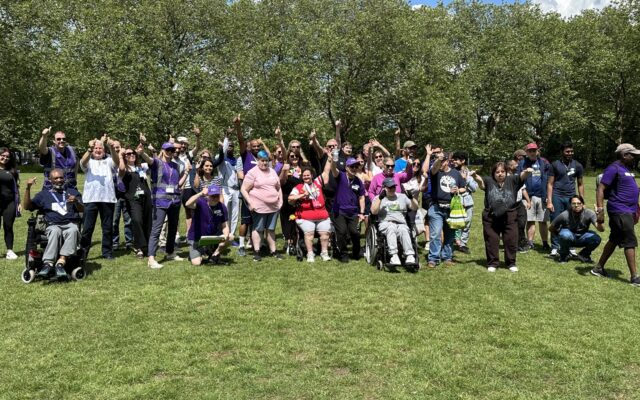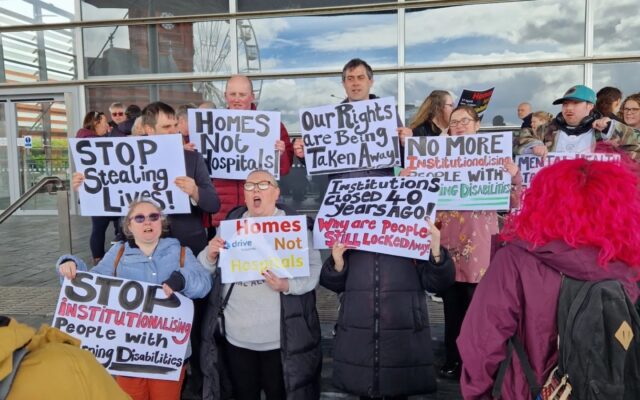Coronavirus was beginning to take a stronger grip on Scottish communities and our day-to-day life was changing in ways we had not experienced before. Panic buying went through the roof amid uncertainty on so many levels about the future.
As a mum of a 38-year-old man with learning and physical disabilities, I was beginning to feel tremors within the social care sector. What would this mean for Mark’s* support in the immediate future – and could it be sustained in the long term? Coronavirus was having a huge impact on the support people relied on daily and generally within the care sector; it was beginning to take its toll.
For some people who relied on their support workers for all aspects of daily living, life was beginning to be shaped on a day-to-day basis by the latest government advice and recommendations. Planning for lockdown for people with learning disabilities and/or autism who depend on their teams for support creates so many uncertainties and disruptions to daily routines. For some, this disruption can have catastrophic consequences and lead to behaviour that stems from their lack of understanding of the restrictive situation we all found ourselves in.
Daily uncertainty
Mark has his own tenancy and receives 24/7 support. The organisation that supports him was doing its very best to put in place safe practice for everyone’s benefit, keeping teams of support workers and my son safe. They were learning every day – like the rest of the world – with the uncertainty of what tomorrow might bring. New rules, legislation, parliamentary bills, isolation and lockdown led to protocols never before considered. These were drawn up urgently and became new, mandatory practice.
The ‘what if?’ talk
The impact on our family gave us great cause for concern, and we had to think about how my son might continue to be supported in ways we had hoped we would never have to think about.
Like many other families, we stay in regular contact, and this was particularly so during this uncertain time. My daughter Susan* and I had been in regular contact with the care organisation and, over recent weeks, had started to consider the “what if?” conversation about Mark’s support. What if Mark gets sick? Who would care for him? What if his team gets sick? Who would take over his support? What if his support organisation has to use other people to support him – could they be infected and risk infecting him? What if I needed to take over his support? Would I be safe from infection? What if I, mum, have the virus? Would I be putting him at greater risk? What if we rotated his care and support with his family members – would that be safe for him? What if…?
There were so many what ifs.
Safe solution
The week before lockdown, we bit the bullet and decided on what we thought was the best possible solution for everyone to keep Mark safe. Susan and her family had already been isolating for more than two weeks since coming back from their holiday. It was obvious they did not have the virus and had been talking as a family about the possibility of Mark going to stay with them until this crisis was over. They felt he could be safe there.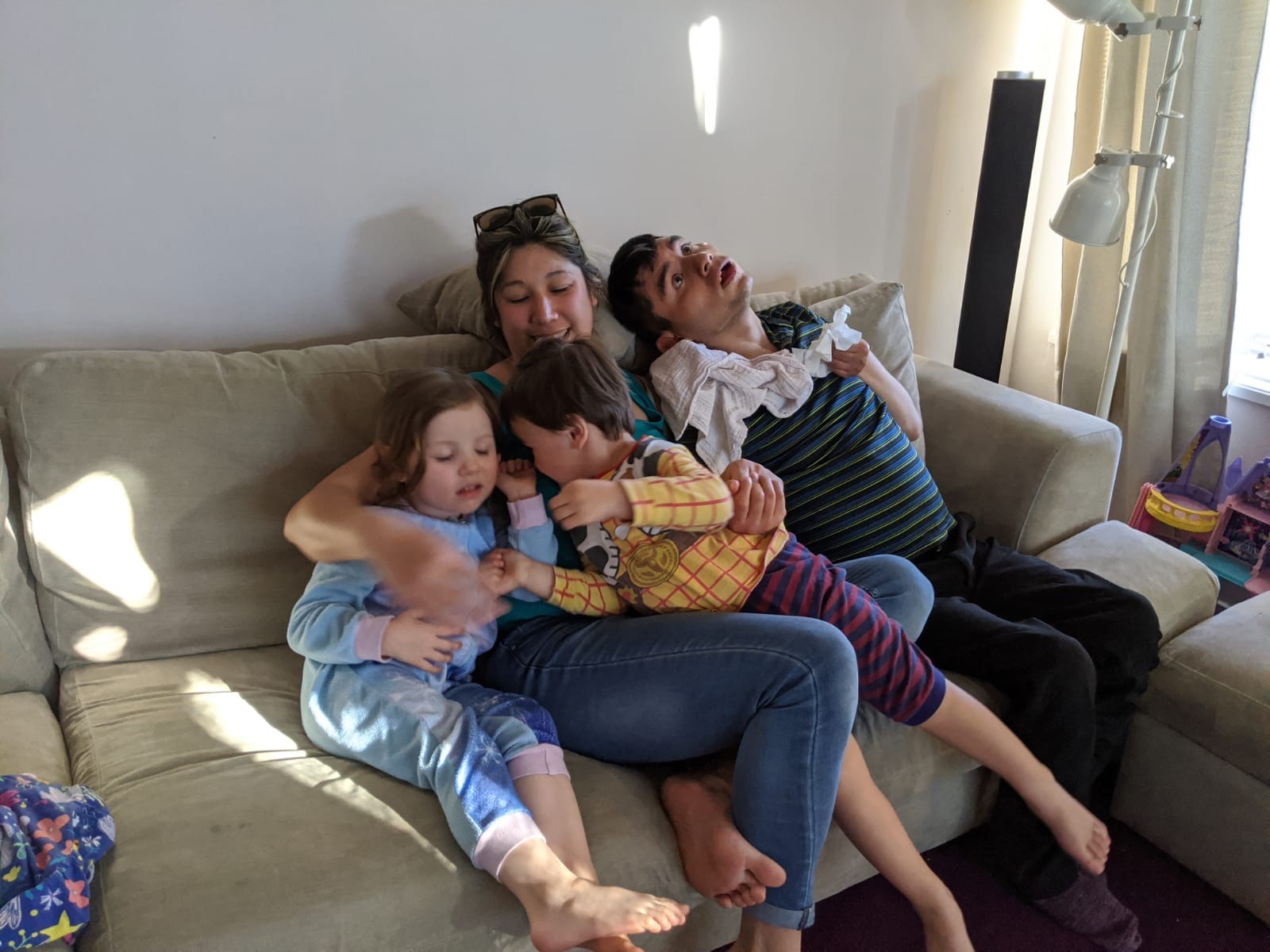
I was speaking with my daughter just after a conversation with a colleague who had informed me that other people with learning disabilities who had been admitted to hospital with Covid-19 were taking second place behind other people admitted to intensive care who were displaying less serious symptoms. This shook me. The NHS has always had the authority to play God, deciding who was most worthy of life. When critical situations arise and choices have got be made, they have to make those decisions. When there is only one liver but two people are in desperate need, how do you choose? I really don’t know. I only know I couldn’t do that job.
Susan said: “Mam, let’s just do it. Let’s get him packed up and he is coming to live with us. It makes sense and the best thing to do for everyone.”
I remember my thoughts.
“I’m the only one that can do that. I should look after him. I know him best.”
“I need to protect Susan.”
“This is too much for her to take on.”
“How will they cope with their four kids and Mark?”
This was a huge thing they were committing to do.
Letting go
I realised I had to let go of locking others out, particularly around my son. I had to trust that they could do this. I had to allow my daughter and her husband to do what they felt was the right thing. They had committed to this as a family to look after Mark and offer him their home for as long as it took.
I have always tried to shield my daughter from the expectation that she would someday take over my watchful eye and be the voice for her brother. I don’t want that burden for her; I have never wanted that, even though I have many fears what the future might hold for him when I’m no longer here. I imagine every parent who has kids, no matter how old they are, will always worry about them. If you have kids with additional needs who rely on others for help and support, I can honestly say the magnitude of that worry seems far greater, and never goes away.
Who will make sure he has a good life? Who will make sure he is healthy and safe? Who will make sure he has good support from people who want to spend time with him, take good care of him, look out for him and love him?
This is the heaviest load I carry around and those thoughts sit in the forefront of my mind, fuelled with fear and turbulent tides of emotions.
Settling in
Mark reached his first milestone of a week staying with his sister and family. It took some settling in and everyone began to learn new things about each other. New bonds were being made and new play pals established. Routines were disrupted and new ones tested.
None of this is easy, totally the opposite – it’s exhausting. However, they are embracing it, rediscovering each other and have been sharing with me those gems of moments that would never have happened before. The day Mark moved to live with his sister, I asked the local authority for a small part of his budget to pay his sister for the continuation of his care and support. She was not looking for any payment, but I felt it was the right and just thing to do.
Mark has option 2 through self-directed support which is supposed to offer a little more flexibility. In Scotland, the Covid-19 guidance on self-directed support clearly shows local authorities how they should support the continuation of support packages, offering flexibility with as little bureaucracy as possible during this exceptional time. Really.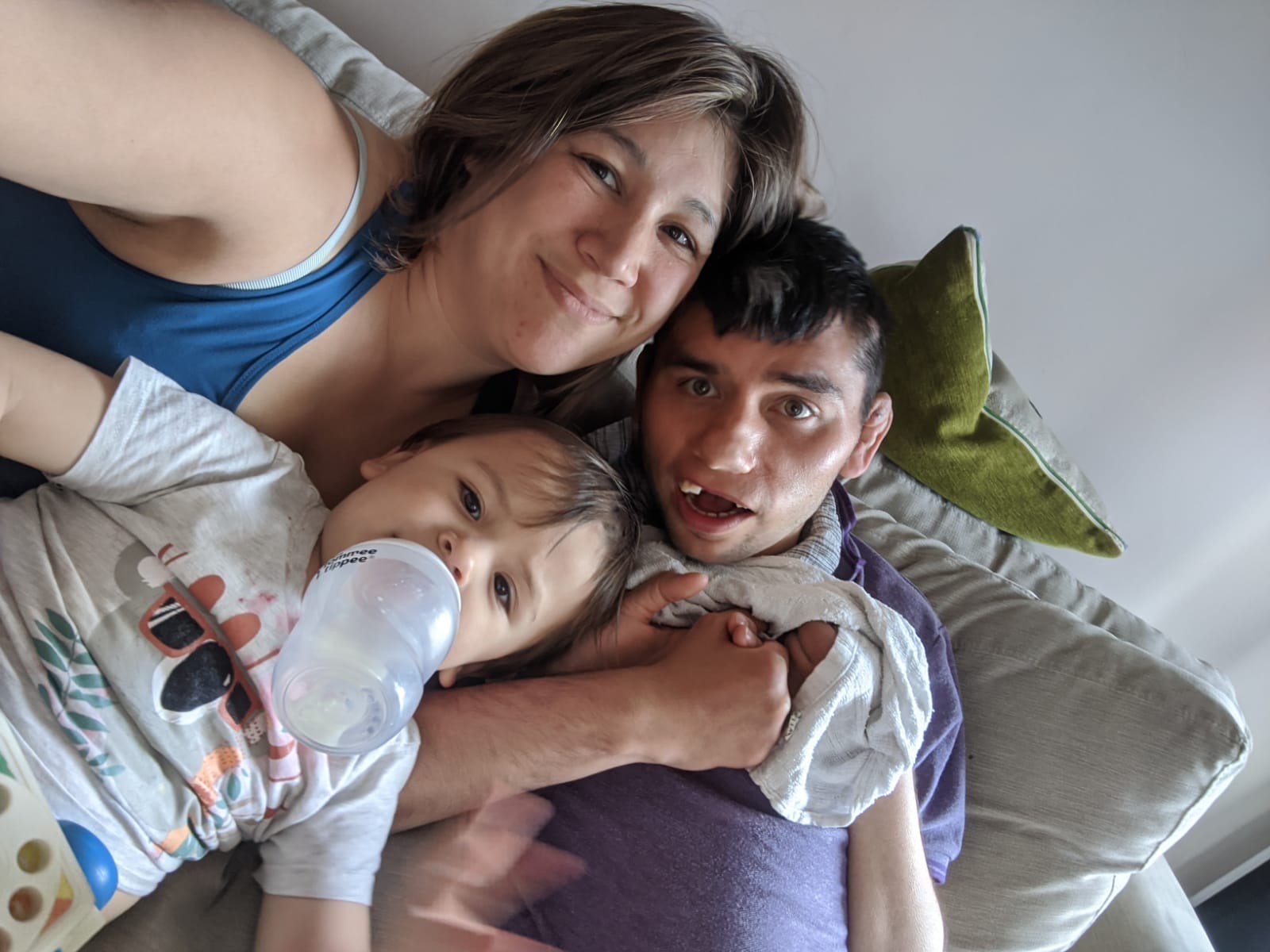
It took more than three months after many letters to the local authority and finally the Scottish Government to come to some sort of agreement. We were offered a direct payment of 25 hours a week for the month of July only.
Over the summer, the pressures of returning to work started to build on my daughter and her husband, and I could see the effect the added stress of caring for Mark was having on them all as a family. It was time for Mark to go home. In early July, we reached week 14, and Mark was still living with his sister and her family while we were making the plans for him to move back home. Mark has adapted well to family life and has had to learn to cope with not always being at the centre of attention and decision making. I am now worried about how he will cope moving back to his own home, living alone with just his support. A mother’s worry continues.
Undoubtedly, everyone in the family will feel a loss of some sort as life settles back into a different “new” normal but the bonds that have been made during this time of lockdown are now stronger than ever and will live on. Mark will move back home and life will never quite be the same again for all of us. What I do know is that this close family will continue to love, grow and develop as one, and Mark will always have a place at its heart.
I genuinely cannot put into words the gratitude I have for my daughter, her husband and each of the four grandkids for doing this selfless task. Each of them in their own way connected with Mark and contributed without complaint towards supporting him during his stay selflessly and allowing him to take over part of their life and their home. I am and will continue to be eternally grateful and so very proud of them all.
* Names have been changed
Liz Callaghan is quality control coordinator at Values Into Action Scotland


